Back in 2019, Chris Waegner shared insights into Sony Pictures Imageworks’ visual effects work on Men in Black: International. Following that, he contributed to major productions, including Zombieland: Double Tap, The Falcon and the Winter Soldier, Spider-Man: No Way Home, and Guardians of the Galaxy Vol. 3.
How was this new collaboration with Director Jake Kasdan and with VFX Supervisor Jerome Chen?
The team at Sony Pictures Imageworks had a great experience working with Director Jake Kasdan and VFX Supervisor Jerome Chen. Early in the filmmaking process, the Imageworks team was asked to help with several creative aspects on the film which expanded our role. Our teams took on a larger pre-vis/post-vis role throughout the show helping them visualize new ideas and hash out existing concepts.
How did you organize the work with your VFX Producer?
Our scope of work on the project grew quite exponentially. In situations like this, it is paramount to work together balancing available artist pool against production deadlines and final delivery of such a project.
What are the sequences made by Sony Pictures Imageworks?
We completed just over 700 shots on the project and some of our larger sequences were the Aruba Snowman Battle, Robot Fight, Globing of Jack and Dylan and the final Runway Battle with Gryla. Each of the sequences were so difference and had their own particular set of challenges.

How did you approach balancing realism with the fantastical elements of the story?
There’s always a challenge balancing realism and magical/fantastical elements in a movie like Red One. It’s important to the filmmakers that the audience stays engaged with the story, therefore creative collaboration, close communication and frequent reviews with the Director and VFX Supervisor are critical.
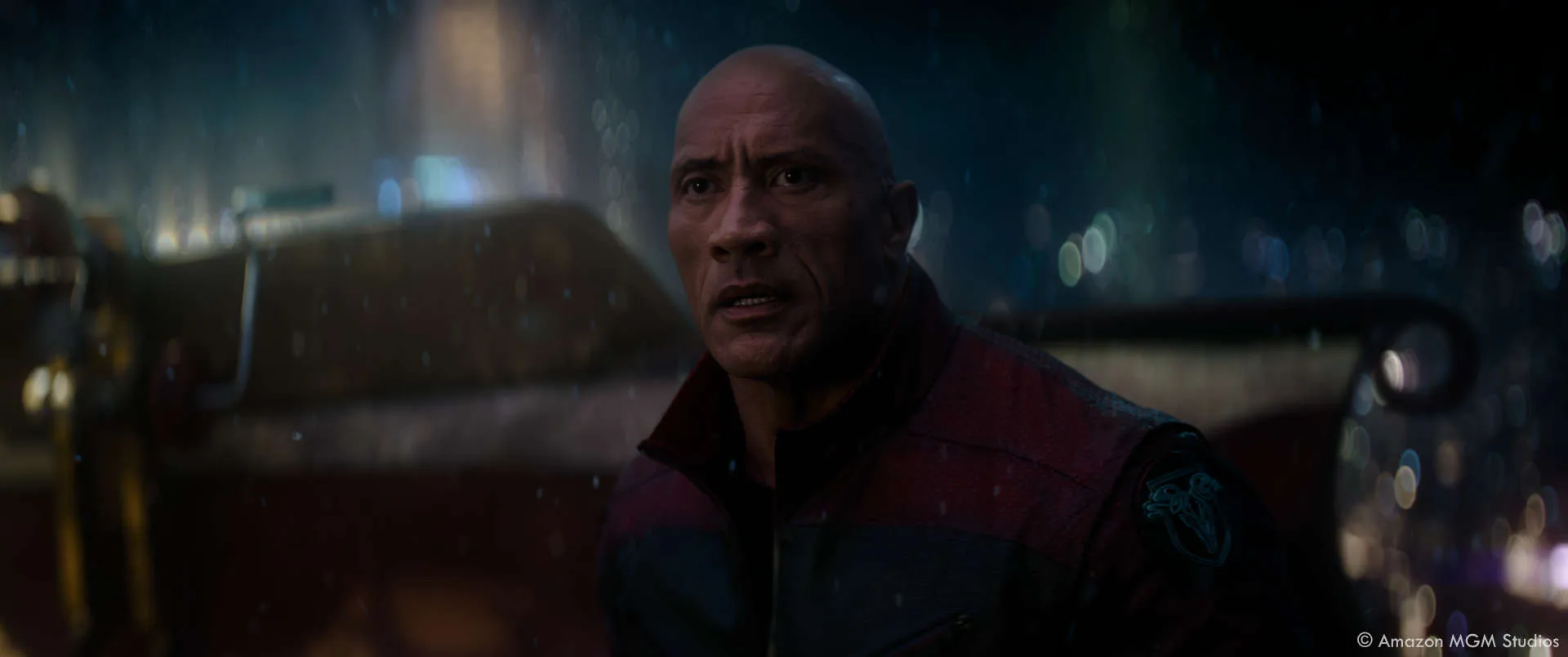
What were the biggest challenges you faced in designing and animating the key characters and environments?
One sequence that comes to mind is the “Aruba Snowman Battle” where there’s this stunning visual juxtaposition of snowmen in the tropical setting of Aruba. It was a pretty big endeavor for our team to figure out how these snowmen assassins would move, let alone what these snowmen assassins would look like in this tropical beach location. There’s literally no practical or visual reference to rely upon because snowmen don’t exist in hot tropical locations, so the “Aruba Snowman Battle” became a fun creative challenge for our teams.
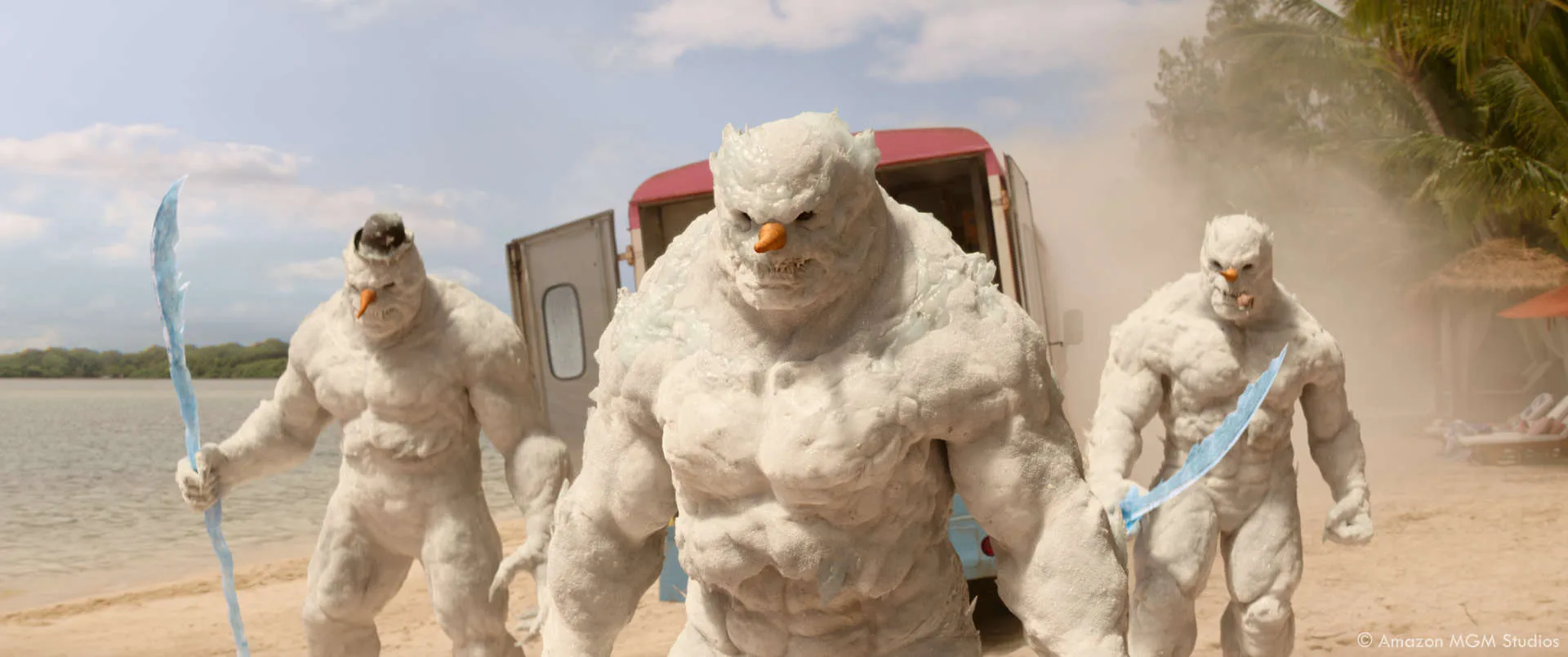
How did you collaborate with other departments, such as production design or costume, to ensure visual consistency?
Since Imageworks was one of the initial creative vendors on the project, we were on location with the film crews at several different locations. We had early access to set designs, costume material booklets, hundreds of scans and tons of photo reference which is a wealth of knowledge when doing a film of this scale.
What inspired the design of the snowmen, and how did you ensure they felt both magical and believable?
Throughout the course of the show, the snowmen characters went through several different design iterations. Originally, their design had more of an ice ninja look but as animation testing progressed, they evolved into a more traditional snowman design. Each one having unique physical design characteristics, different ice weapon components and various traditional wardrobe accessories like a top hat, carrot nose, corncob pipe, etc.
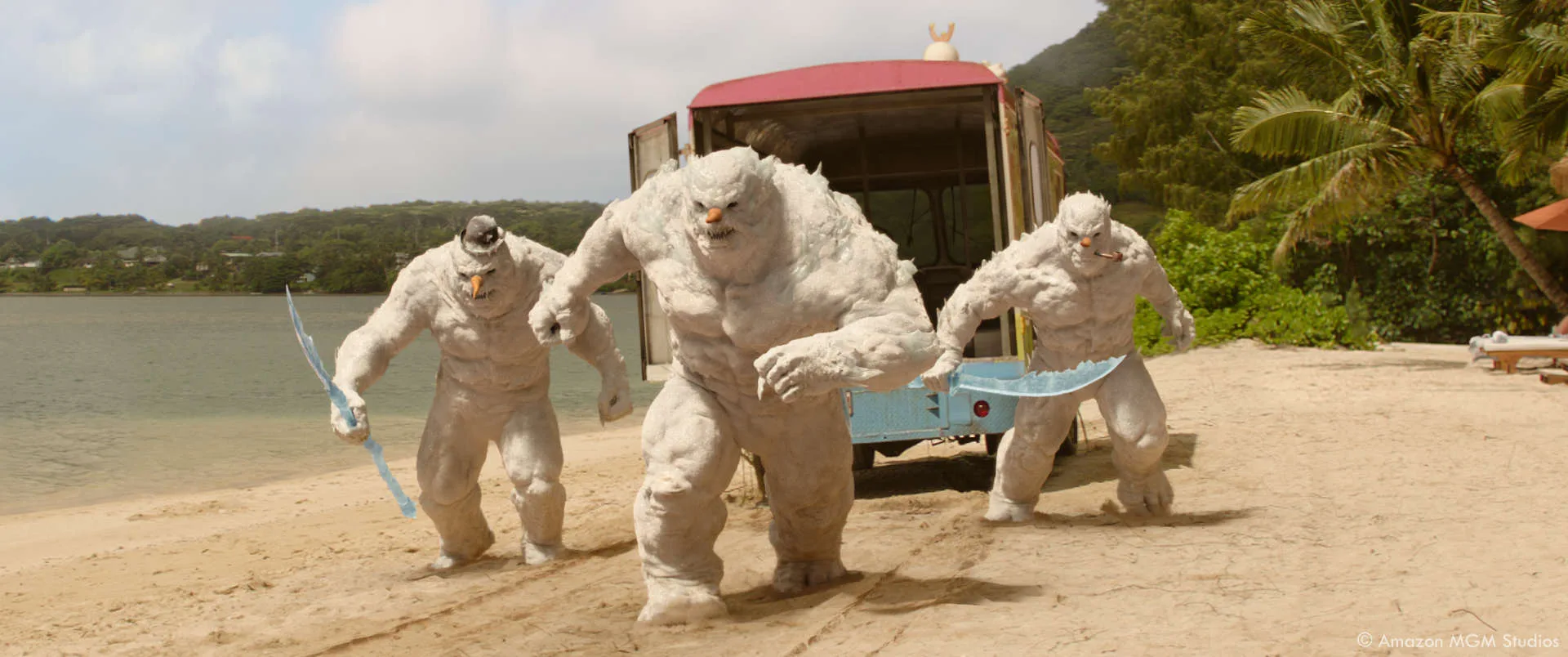
Could you elaborate on the animation process for the snowmen? How did you bring their personalities to life?
We started initial animation testing with the original character concept, a smaller leaner ice ninja design. It soon became apparent this design wasn’t quite working as expected for our filmmakers so we started exploring several new snowman designs. These new snowmen design slowly evolved into a more traditional look and their physical presence became much larger in scale. Bringing the snowmen to life then became an iterative process for our animation team by determining how they’d move and emote. Each snowman also had a full facial rig but the extensive animation testing helped us determine if they emoted too much, they started looking cartoony and became less threatening. We then determined that a deadpan/stoic look with subtle facial movements worked well with their menacing physical qualities.
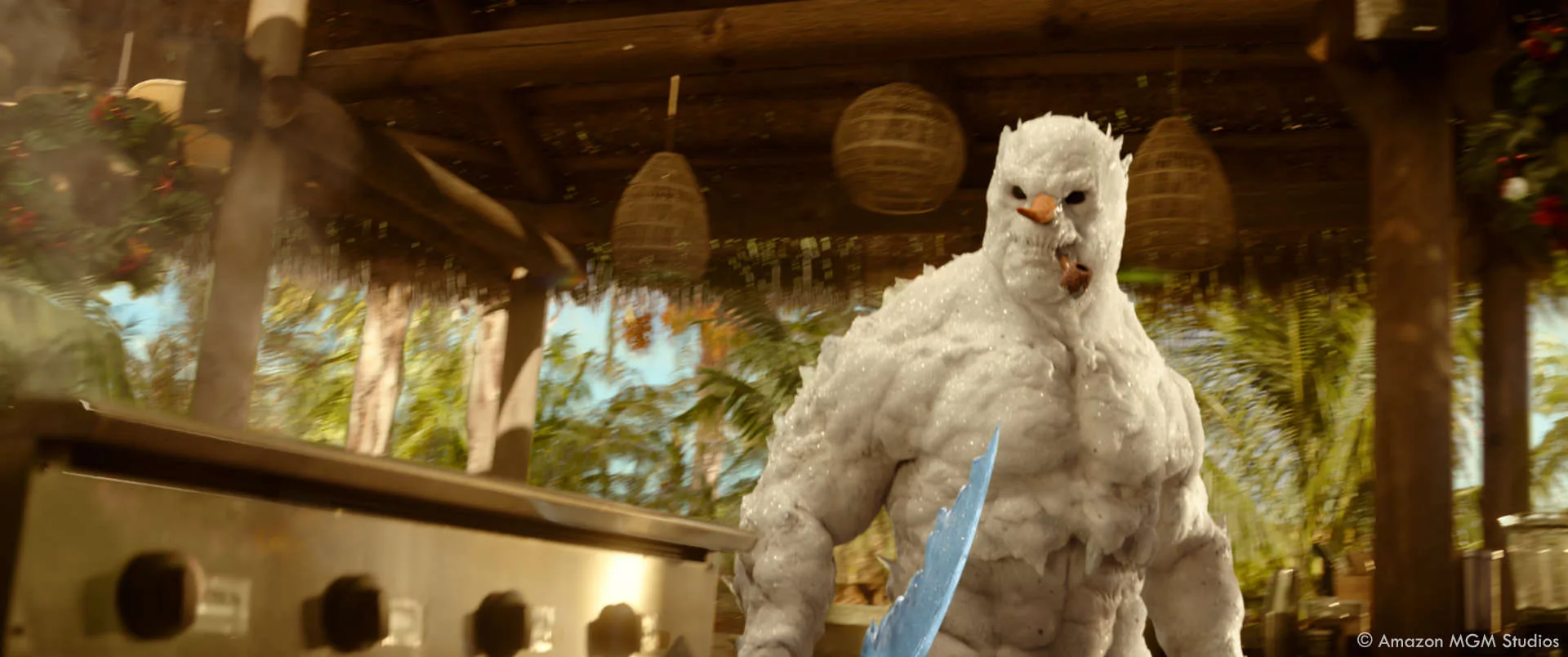
Snow can be a challenging material to simulate—how did you achieve the right balance of texture and movement for the snowmen?
Working closely with our film makers we determined the snowmen could not be composed entirely of pure white fluffy snow. These big burly snowmen needed a unique look, which was a combination of snow, chucks of ice, dirt debris and fine ice crystals – we also incorporated a subtle crystalline light scatter effect and some snowy subsurface details. As the sequence progresses, they also start accumulating more dirt, debris and little bits of the tropical environment stick to them.
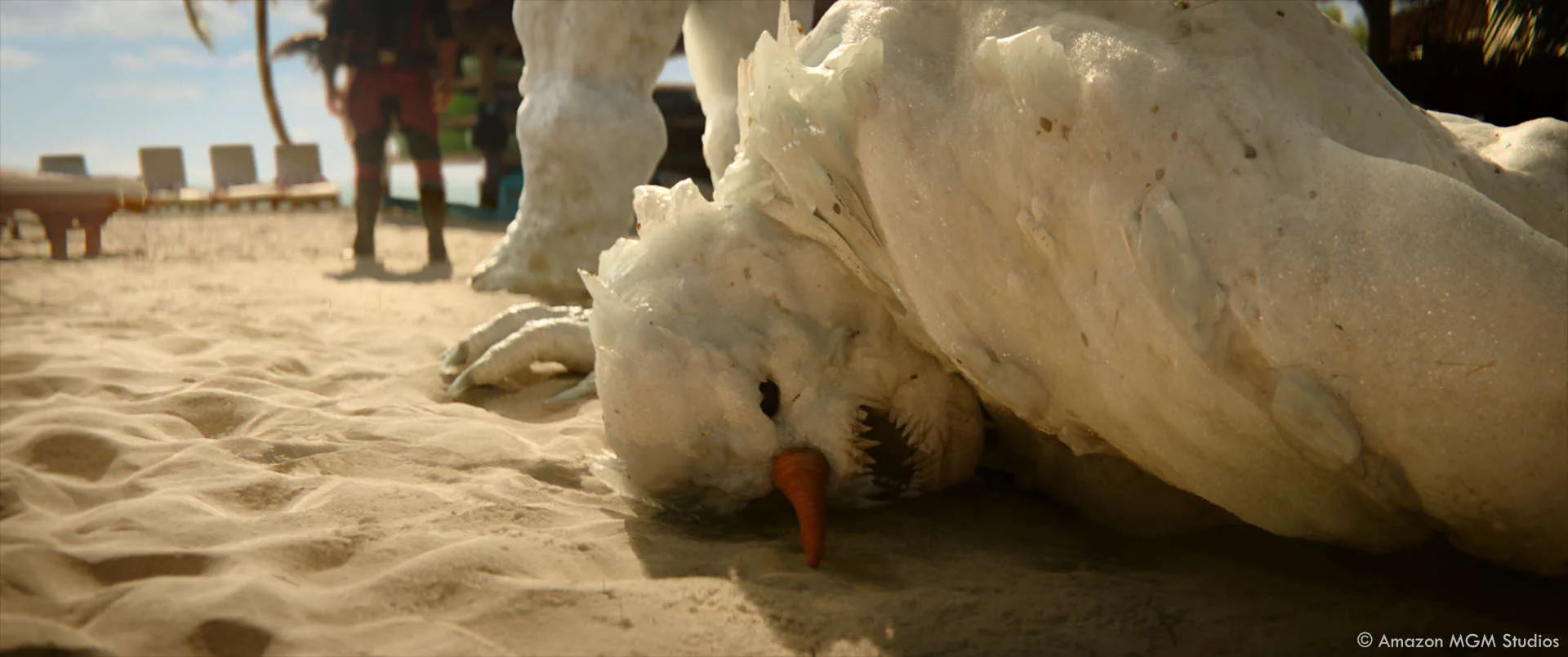
Were there any practical effects combined with CG for the snowmen, or were they fully digital creations?
Unfortunately, there weren’t a lot of practical affects we could utilize for the Snowman fight sequence due to their physical size and fight choreography, so for most of the sequence they were digital creations. The fight in the cantina, the cantina explosion and the end of the sequence is a great example of practical effects working well in the sequence.
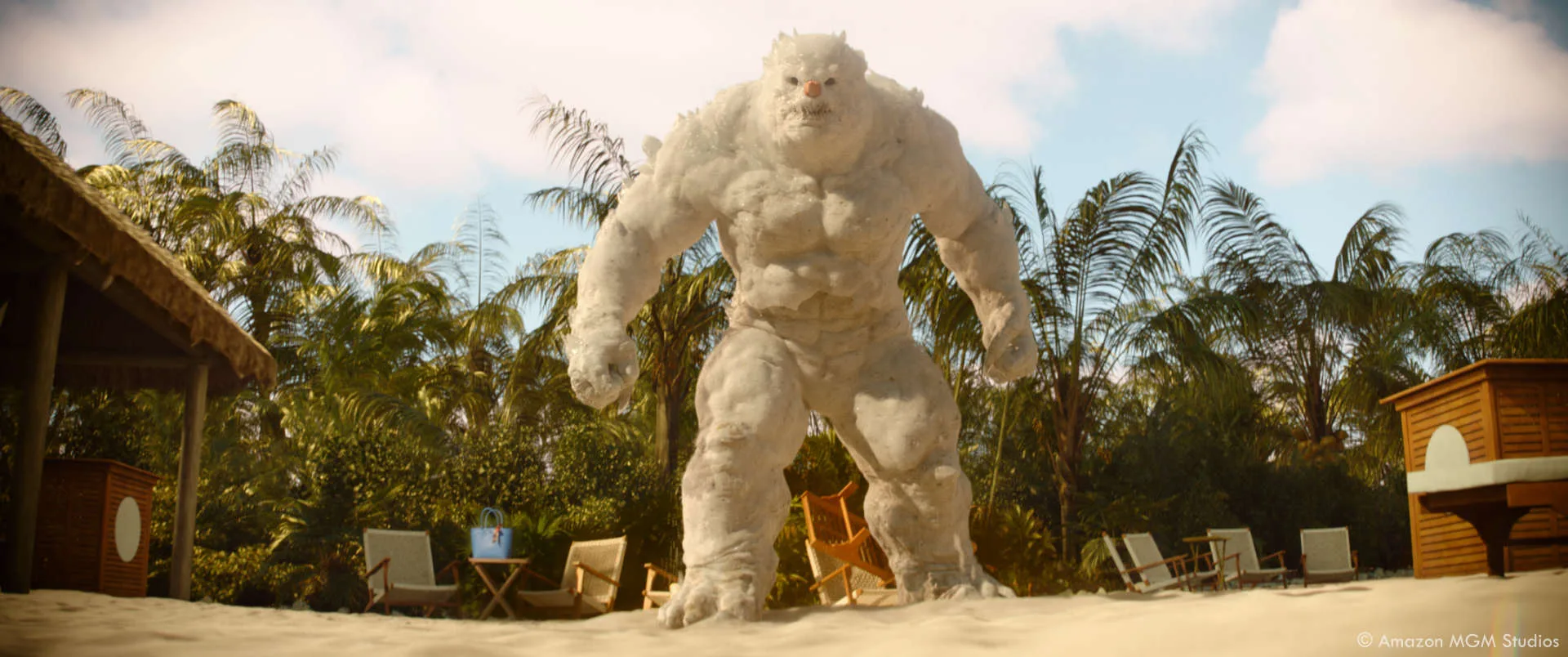
How did the snowmen interact with live actors or environments, and how did you ensure seamless integration?
Early pre-vis animation played a key role helping the filmmakers, stunts and camera teams plan out the snowmen fight sequence. Stuntmen posing as snowmen were vital in acting out key shots with our heroes Cal and Jack for the plate photography. Detailed rotomation of our heroes and stuntmen was necessary to ensure seamless integration could be achieved when our heroes physically interacted with the digital snowmen.
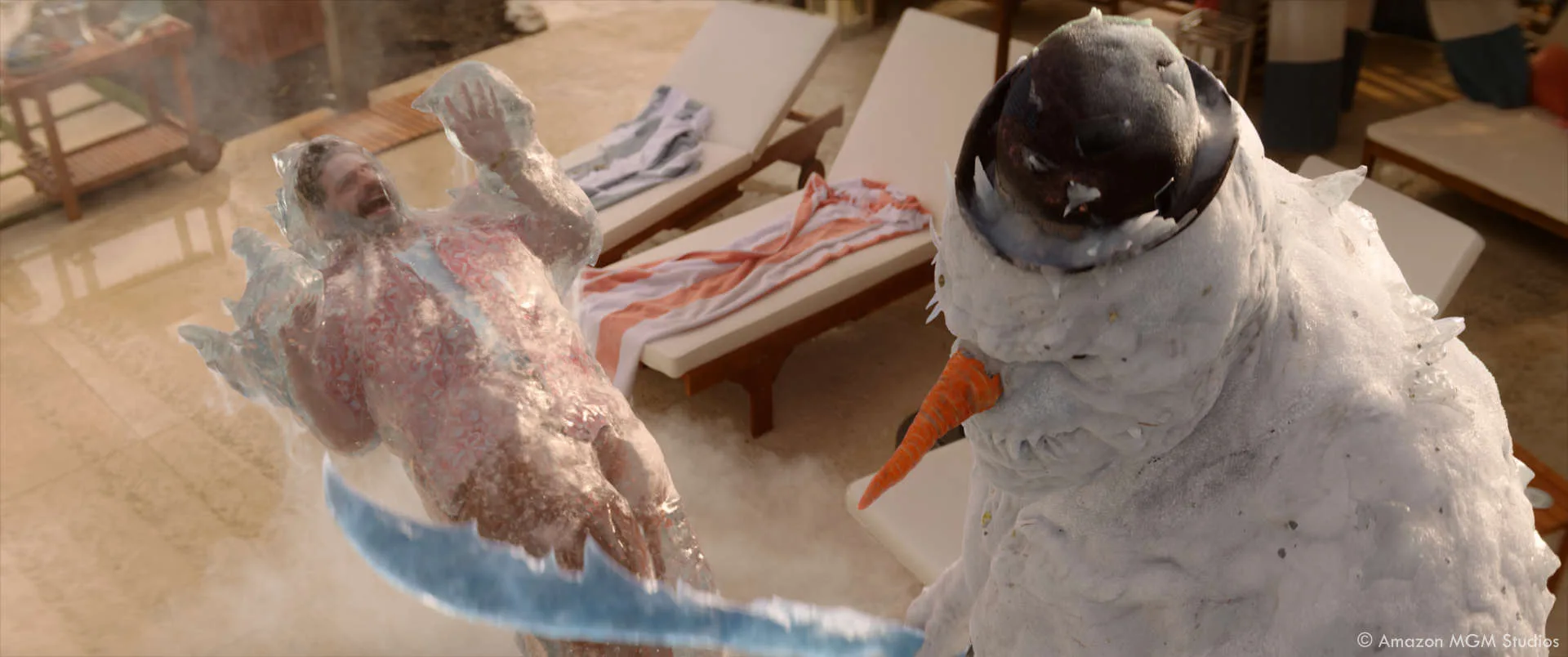
Gryla’s design is visually striking. What influenced her look, and how did you bring her character to life through visual effects?
Gryla has a long history in Icelandic Christmas folklore. Our filmmakers used this as inspiration but crafted their own version of Gryla unique to the movie. Our Gryla is 18 feet tall with a decrepit hunched over physical appearance, Minotaur-type legs and two lengthy tails. One challenge the animation team had to overcome was making her appear to be a formidable adversary to our heroes due to her decrepit hunched over pose. We used her tails as a physical counterbalance to her posture and the tails themselves became prehensile weapons. At first glance, she seems old and decrepit but then you realize that she’s quite spry and can move very fast during battle.
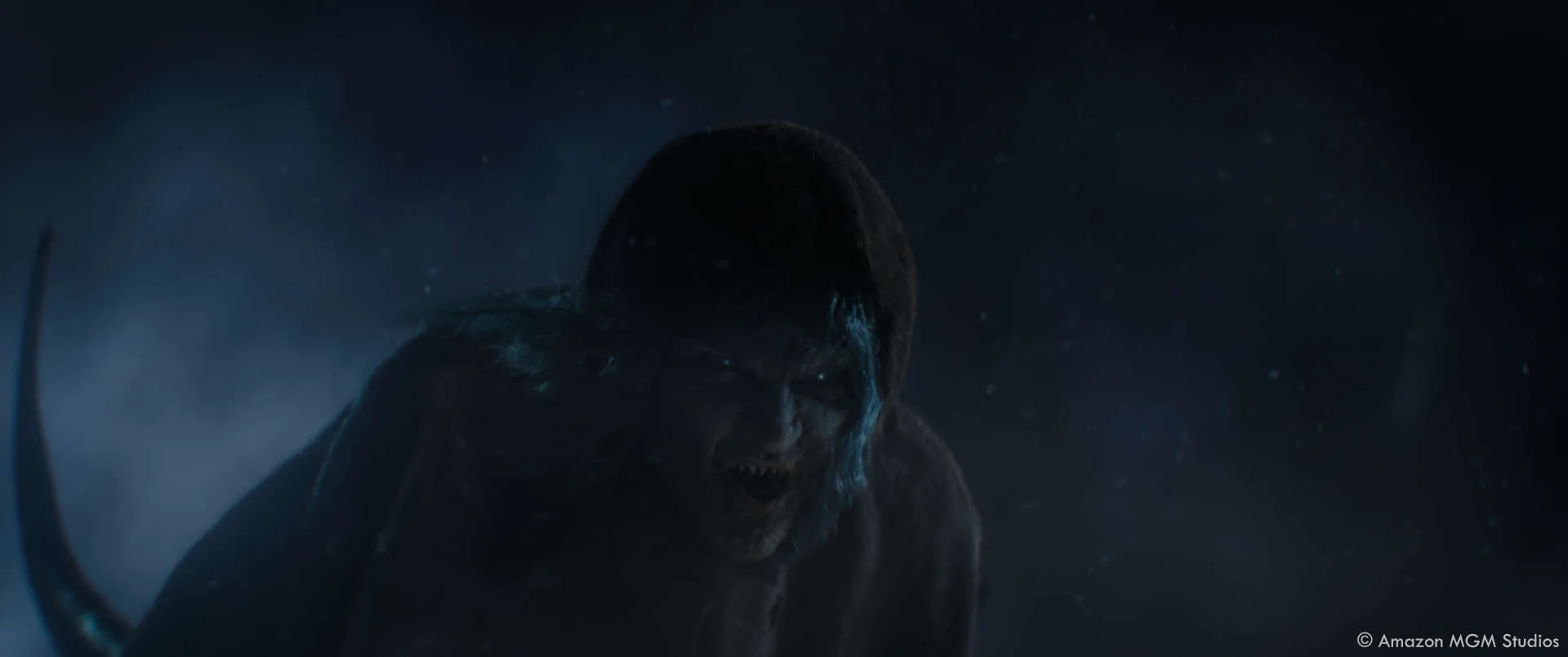
Were there any motion capture or performance reference techniques used for animating Gryla?
We used key frame animation for Gryla’s body performance and incorporated a head-mounted camera on Kiernan Shipka to capture for facial performance. Capturing the essence of Kiernan’s performance was key and then determining the correct balance required for the shots was essential since the structural differences between Kiernan and giant Gryla was quite different.
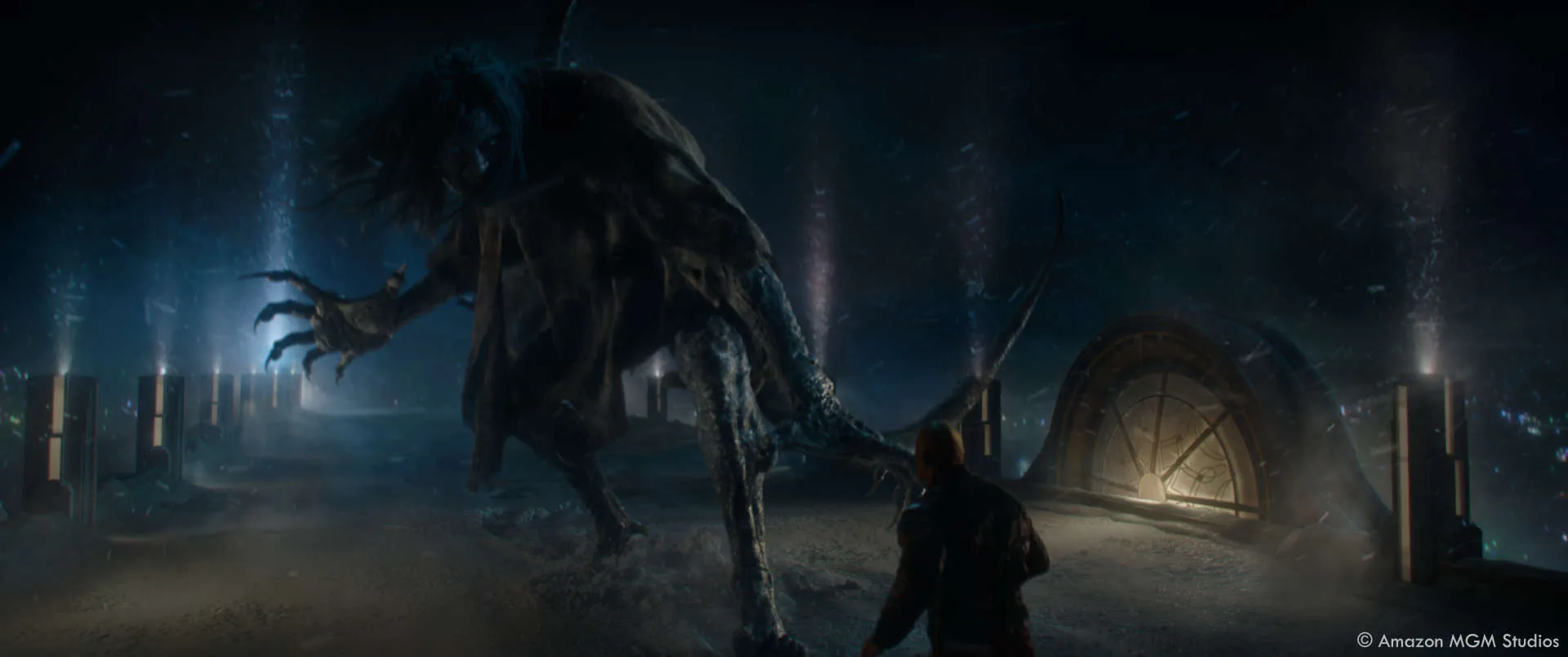
How did you ensure Gryla’s interactions with the environment and other characters felt natural and grounded?
Gryla’s unique design and mainly her being 18 feet tall definitely had its own set of unique challenges. Lots of planning while on set, detailed lidar set acquisition and onset HDRI reference was helpful in keeping things grounded. Another challenge was keeping our audience completely engaged in the story and not letting the presence of an 18 foot tall character take them out of the moment. Seamless visual integration by all our teams was paramount in helping us achieve this for our audience.
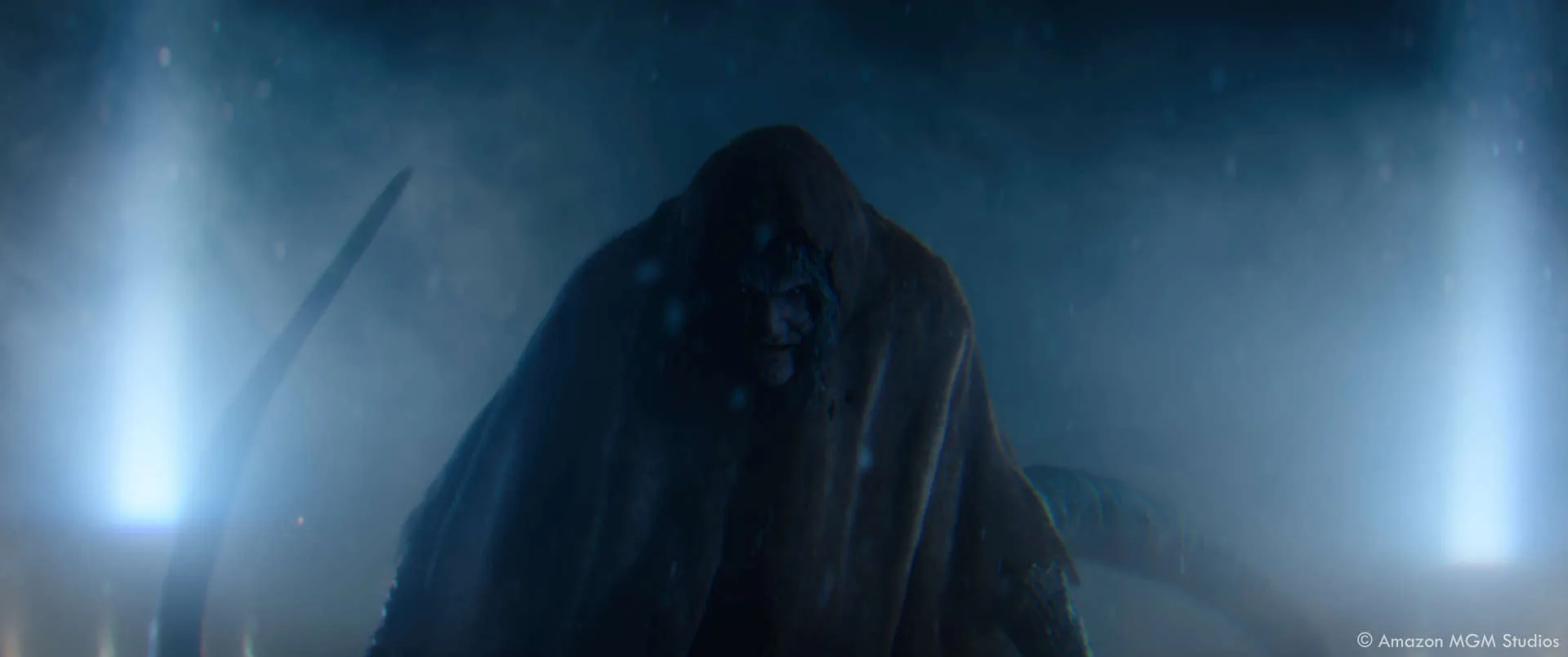
What were the most complex sequences involving Gryla, and how did you tackle them?
Some of the more complex moments and shots with Gryla are when she had to physically interact with our heroes Cal and Jack. Again, detailed shot planning while on set is essential anytime you have live action actors physically interacting with digital characters. It really requires the attention of everyone on set to help plan out these shots so months later you don’t encounter insurmountable problems while in post-production.
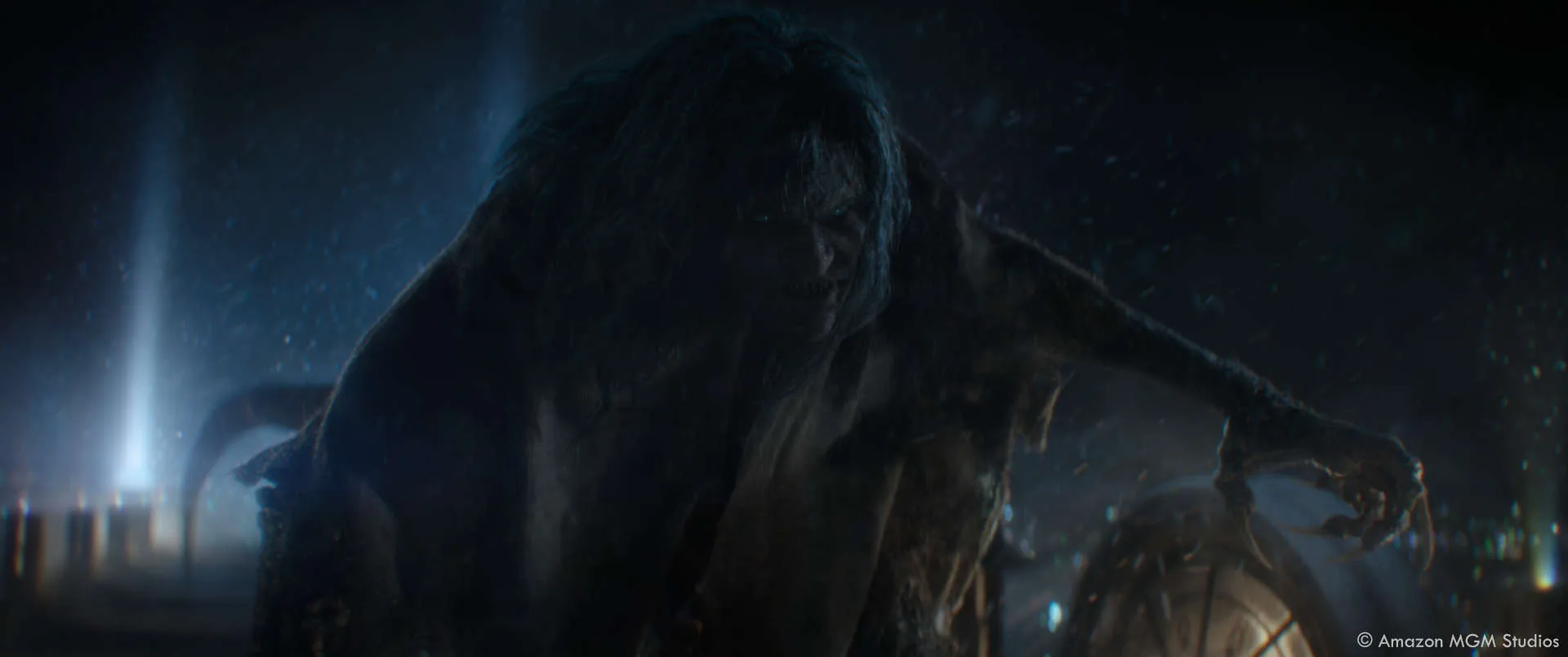
The North Pole is a vital setting in the story. How did you conceptualize and create this iconic environment, and what role did visual effects play in bringing it to life?
We were one of two vendors working on the North Pole City and our portion of the North Pole sequence showcased mostly the runway, North Pole Tower and surrounding Tower locations. Our environments team focused attention on high altitude city views, looking down at the city below and wide panoramic vistas. We created our own customized version of the North Pole City specifically designed and catered to our shot needs. As post-production progressed, a constant visual balance between vendors was necessary in order to ensure the North Pole look was visually consistent, realistic and maintained its magical qualities.
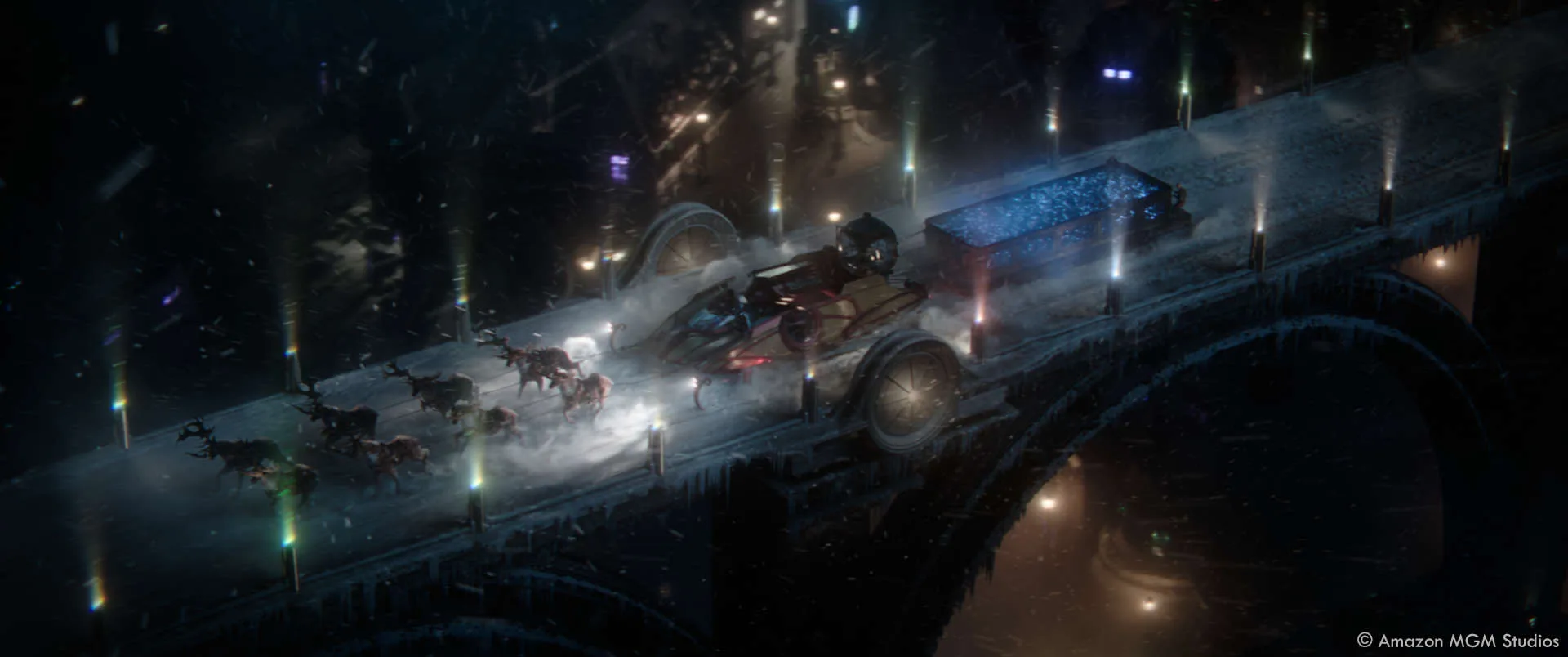
Were there any unexpected technical or creative challenges encountered during the production?
Large visual effects film like this always have some challenges for the creative teams as production progresses. I think the biggest challenge on this film was ensuring seamless visuals for our viewing audiences across all sequences. This movie has many magical and fantastical elements and keeping the visuals grounded in reality makes for a wonderful viewing experience.
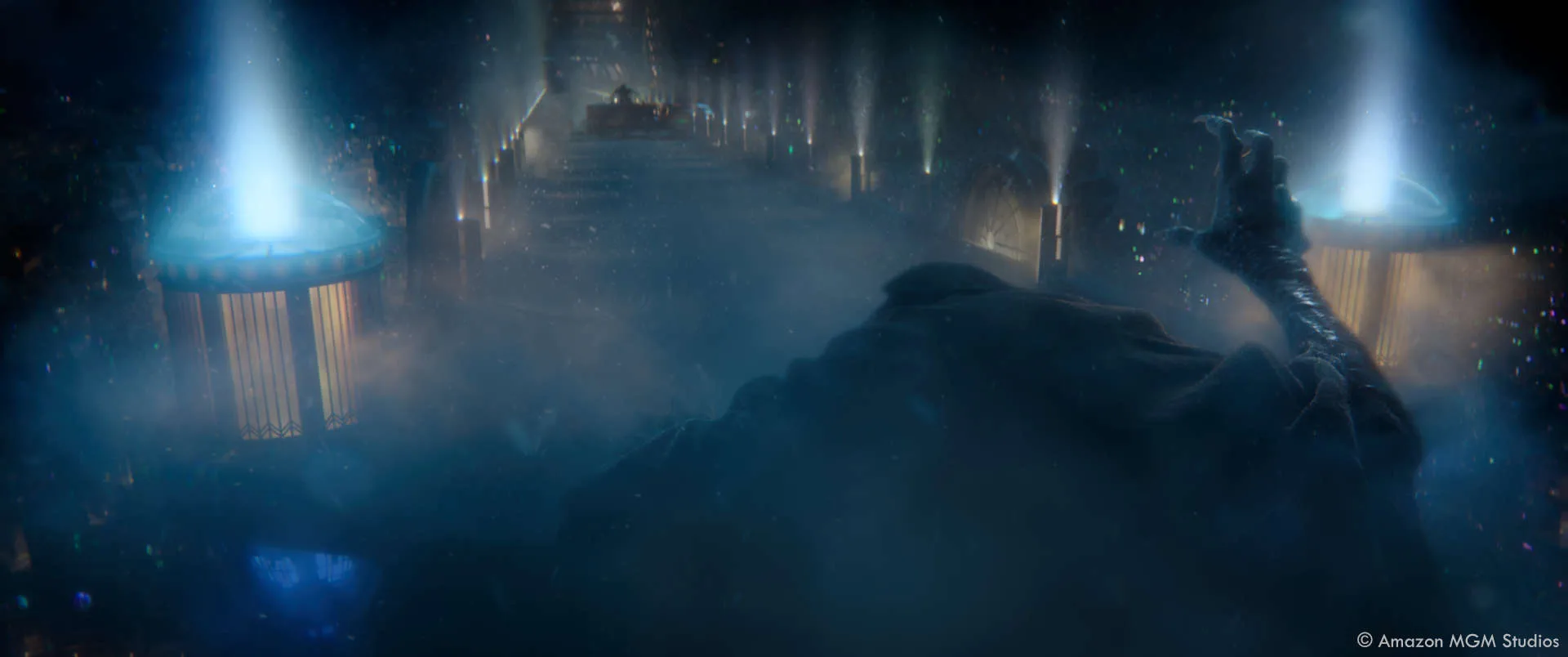
Looking back on the project, what aspects of the visual effects are you most proud of?
I’m very proud of all of the work our team was able to accomplish on Red One – especially our Snowmen assassins and North Pole runway with the Gryla monster in particular. Our filmmakers had very high visual expectations knowing that this film would become a holiday classic going forward for many years and resonating with many generations.
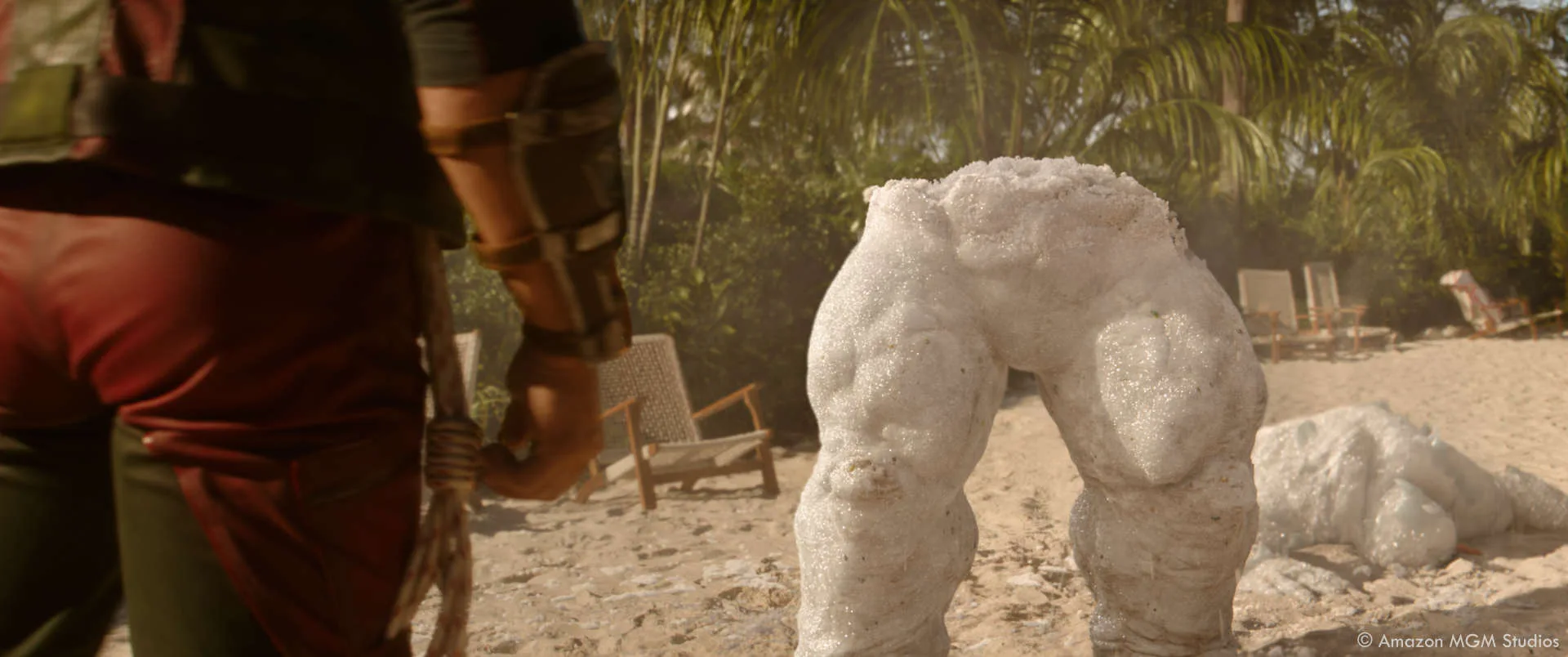
How long have you worked on this show?
I was crewed to Red One for over two years and feel fortunate to have been crewed to the project starting in January 2022.
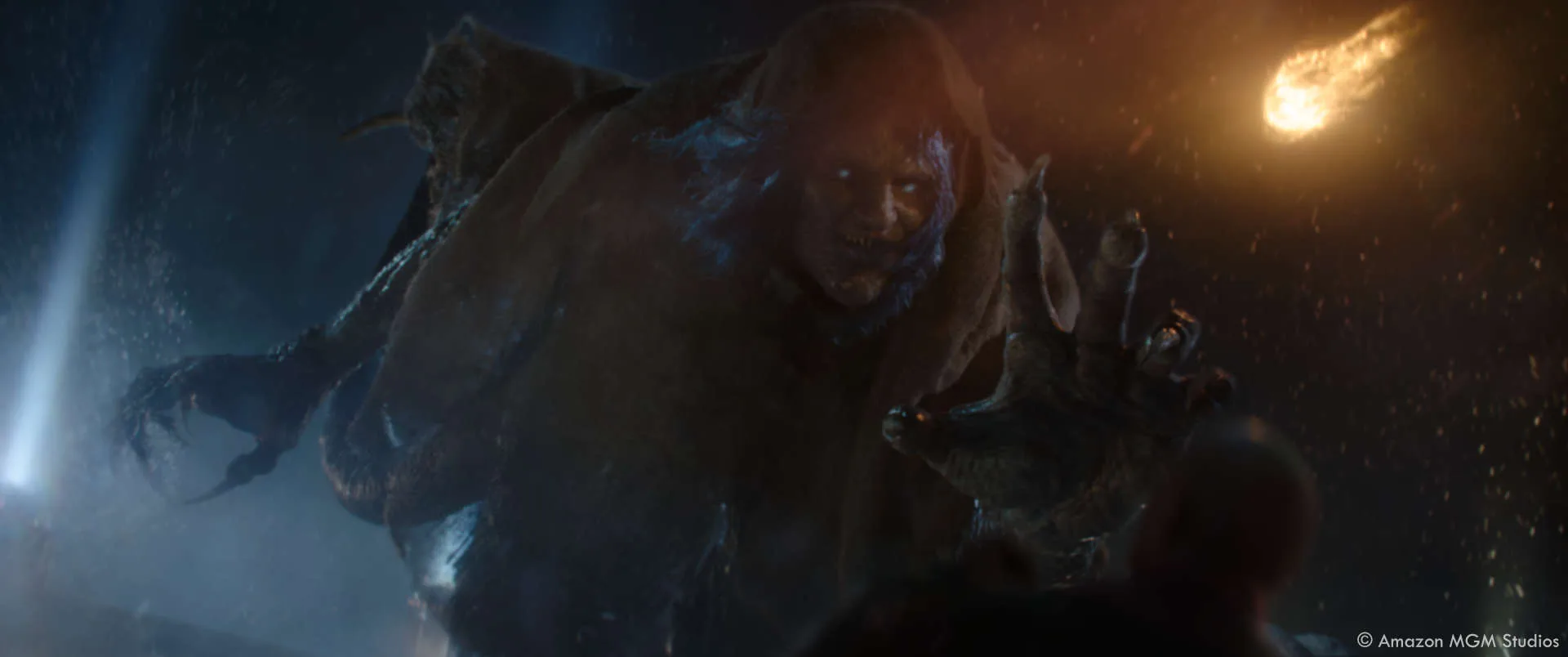
What’s the VFX shots count?
Our team worked on over 700 shots for this film.
A big thanks for your time.
WANT TO KNOW MORE?
Sony Pictures Imageworks: Dedicated page about Red One on Sony Pictures Imageworks website.
© Vincent Frei – The Art of VFX – 2025




